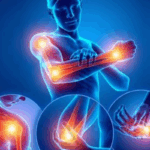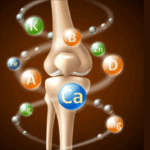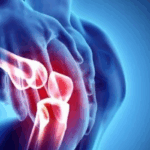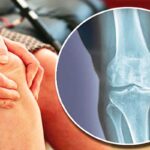
Degenerative arthritis, commonly known as osteoarthritis (OA), is a condition that gradually affects the joints, leading to pain, stiffness, and reduced function over time. It is one of the most prevalent types of arthritis, affecting millions of people globally. As the name suggests, degenerative arthritis occurs due to the gradual wear and tear of cartilage in the joints, causing bones to rub against each other. If left unchecked, it can severely impact a person’s quality of life. Early detection and effective management strategies are crucial for maintaining mobility and minimizing discomfort.
Dr. Ashish Suryawanshi, a renowned orthopedic doctor based in Pune, specializes in the diagnosis and treatment of degenerative arthritis. With clinics located in Nigdi and Thergaon, Pune, he is committed to providing advanced orthopedic care that focuses on long-term relief and recovery.
Early Signs of Degenerative Arthritis
Recognizing the early signs of degenerative arthritis is crucial for prompt and effective treatment. While the condition may not show obvious symptoms in its initial stages, certain warning signs can indicate the onset of the disease. Recognizing these signs can help individuals seek medical attention early, potentially preventing further joint damage.
- Joint Pain and Stiffness
The most frequent symptom of degenerative arthritis is joint pain, which usually intensifies with physical activity and eases with rest. This discomfort commonly affects weight-bearing joints like the knees, hips, and spine. Stiffness in the joints, particularly after periods of inactivity like waking up in the morning or sitting for long periods, is another early sign. - Swelling and Tenderness
Swelling and tenderness may occur in the affected joints due to inflammation. The swelling may not always be obvious, but patients often report a feeling of fullness or warmth around the joint. Tenderness is commonly felt when pressure is applied to the joint or during movement. - Decreased Range of Motion
As degenerative arthritis progresses, the joint’s ability to move freely is compromised. People with OA often experience a decreased range of motion, making it challenging to perform everyday activities such as bending, walking, or gripping objects. - Crepitus (Grinding Sensation)
A grinding or popping sound, known as crepitus, may occur when moving the affected joint. This is due to the rough surfaces of the bones rubbing against each other in the absence of sufficient cartilage. It’s often a sign that the cartilage has worn away significantly. - Fatigue
Chronic pain and discomfort in the joints can cause individuals to feel fatigued and less active. The body’s response to constant pain can lead to exhaustion, making it harder to maintain a healthy and active lifestyle.
Effective Management Strategies for Degenerative Arthritis
Once diagnosed with degenerative arthritis, it’s crucial to adopt a comprehensive approach to manage the condition. Although osteoarthritis has no known cure, various management strategies can ease symptoms, enhance joint function, and slow the disease’s progression.
- Lifestyle Modifications
One of the most effective ways to manage degenerative arthritis is through lifestyle changes that reduce joint stress and promote overall health. Weight management is particularly important, as excess body weight puts additional strain on weight-bearing joints like the knees and hips. Regular low-impact exercises such as swimming, walking, or cycling can help improve joint flexibility, build muscle strength, and reduce pain. - Physical Therapy
Physical therapy is an essential part of arthritis management. A qualified physical therapist can create a customized exercise plan aimed at strengthening the muscles surrounding the affected joint, enhancing flexibility, and alleviating pain. Therapists may also use techniques like heat or cold therapy to alleviate discomfort and swelling. - Medications
Medications for pain relief are commonly used to help manage the symptoms of degenerative arthritis. Over-the-counter options such as acetaminophen and nonsteroidal anti-inflammatory drugs (NSAIDs) can help alleviate pain and reduce inflammation. For more severe cases, a doctor may recommend stronger prescription medications or topical creams that target joint pain. In certain situations, corticosteroid injections might be administered to temporarily reduce inflammation. - Joint Protection Techniques
Learning proper joint protection techniques can help individuals with degenerative arthritis reduce unnecessary strain on their joints. These may include using assistive devices like braces, splints, or canes, as well as modifying daily tasks to avoid excessive joint pressure. - Surgical Interventions
When conservative treatments no longer provide sufficient relief, surgical interventions may be necessary in certain situations, corticosteroid injections might be administered to temporarily reduce inflammation. - Other options include arthroscopy or joint fusion surgery, depending on the severity of the arthritis.
- Complementary Therapies
Some patients experience relief from arthritis symptoms by using complementary therapies, including acupuncture, massage therapy, and supplements such as glucosamine and chondroitin.
- While research on the effectiveness of these treatments is ongoing, they can be used alongside traditional management strategies to improve quality of life.
- Regular Monitoring and Follow-up
Degenerative arthritis is a chronic condition, and its management requires regular monitoring and follow-up with a healthcare provider. Dr. Ashish Suryawanshi, one of the best orthopedic doctors in Pune, emphasizes the importance of regular check-ups to assess the progression of the disease and adjust the treatment plan as needed.
Summary
Degenerative arthritis is a progressive condition that causes joint pain and stiffness due to the breakdown of cartilage. Initial symptoms may include joint pain, stiffness, swelling, reduced range of motion, and a cracking or grating sensation (crepitus). Effective management strategies include lifestyle modifications, physical therapy, medications, joint protection techniques, and in some cases, surgery. Consistent check-ins with a healthcare provider. Dr. Ashish Suryawanshi, an orthopedic expert in Pune, can help optimize treatment and improve outcomes for individuals suffering from osteoarthritis.




